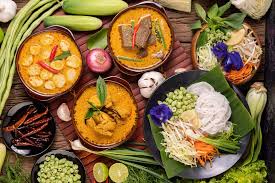Halal certification is an important concept for Muslims and businesses that cater to their needs. It ensures that food, products, and services follow Islamic guidelines. In this article, we will explain what halal certification means, its importance, the process to obtain it, and its benefits. Let’s dive in.
What Does Halal Mean?
The word “halal” is Arabic and means “permissible” or “lawful.” In Islam, halal refers to anything that is allowed according to Islamic law (Sharia). This can apply to food, drinks, cosmetics, pharmaceuticals, and even services.
In contrast, “haram” means “forbidden” or “not allowed.” Muslims avoid haram products and only consume halal items.
Why Is Halal Certification Important?
Halal certification is vital because it provides assurance to Muslim consumers that the products they are using or eating comply with Islamic principles. It is especially important in today’s globalized world, where food and products are sourced from various places.
Here are the key reasons why halal certification matters:
- Religious Compliance: Muslims want to ensure they are following their faith by consuming halal products.
- Trust and Transparency: Certification creates trust between businesses and consumers. It guarantees that products are made according to halal standards.
- Global Market Access: Businesses that obtain halal certification can reach the global Muslim population, which is over 1.9 billion.
- Health and Safety: Many people believe halal-certified products are healthier and safer because of the strict guidelines they follow.
What Is Halal Certification?
Halal certification is an official document issued by a recognized authority. It proves that a product, service, or facility meets Islamic dietary laws and guidelines. The certification process involves inspecting every aspect of production, from sourcing ingredients to manufacturing and packaging.
There are different types of halal certification based on the product or service:
- Food Certification: Ensures that food items and drinks are halal.
- Cosmetic Certification: Ensures that personal care items, like creams and shampoos, are made without haram ingredients.
- Pharmaceutical Certification: Ensures that medicines are free from haram substances like alcohol or pork-based gelatin.
- Restaurant Certification: Confirms that a restaurant prepares and serves only halal food.
- Logistics Certification: Ensures the transportation and storage of halal products follow Islamic rules.
How Is Halal Certification Obtained?
The process to obtain halal certification involves several steps. Here is a simple explanation:
1. Application
A business or manufacturer submits an application to a halal certification body. These bodies are recognized authorities that oversee halal compliance.
2. Document Review
The certifying body reviews the documents provided by the business. These documents include ingredient lists, manufacturing processes, and supply chain details.
3. Inspection
Inspectors visit the business premises to verify that everything complies with halal standards. They look at how the product is made, stored, and transported.
4. Approval
If the business meets all the requirements, the certifying body issues the halal certificate. This certificate is usually valid for a specific period, such as one or two years.
5. Renewal
To maintain certification, businesses need to renew it regularly and undergo inspections again.
Key Requirements for Halal Certification
Halal certification bodies check several things to ensure compliance. Here are the main requirements:
- Ingredients: All ingredients must be halal. For example, no pork, alcohol, or animal-derived products from non-halal sources can be used.
- Processing: The manufacturing process must be free from contamination by haram substances.
- Storage: Halal products must be stored separately from haram products.
- Packaging: The packaging should not use materials derived from haram sources.
- Hygiene: Cleanliness and hygiene are crucial in the preparation and handling of halal products.
Who Provides Halal Certification?
Many organizations around the world provide halal certification. Some of the well-known halal certification bodies include:
- Malaysia: JAKIM (Department of Islamic Development Malaysia)
- Indonesia: MUI (Majelis Ulama Indonesia)
- United States: Islamic Society of North America (ISNA)
- United Kingdom: Halal Food Authority (HFA)
- Australia: Halal Certification Authority (HCA)
Each of these bodies follows Islamic guidelines but may have specific regional standards.
Benefits of Halal Certification
Halal certification benefits both consumers and businesses. Here’s how:
For Consumers
- Peace of Mind: Muslims can trust that the products they use or consume are halal.
- Healthier Options: Halal products are often associated with higher quality and cleanliness.
- Transparency: Certification ensures clear labeling and transparency about what goes into products.
For Businesses
- Access to a Global Market: Businesses can tap into the large and growing Muslim population worldwide.
- Competitive Advantage: Halal certification sets businesses apart from competitors.
- Higher Credibility: Certification enhances a brand’s reputation and trustworthiness.
Challenges in Halal Certification
While halal certification is beneficial, it also comes with challenges. Some of these include:
- Cost: The certification process can be expensive for small businesses.
- Complex Regulations: Different countries have varying halal standards, making compliance tricky.
- Fraud: Some businesses falsely claim to be halal-certified, which can mislead consumers.
- Limited Awareness: In some regions, consumers and businesses may not fully understand the importance of halal certification.
Halal Certification Around the World
The demand for halal-certified products is growing worldwide. Here’s how different regions approach halal certification:
Asia
Asia is home to many Muslim-majority countries, like Malaysia, Indonesia, and Pakistan. These nations have strict halal certification systems and a high demand for halal products.
Middle East
The Middle East relies heavily on imports, making halal certification crucial for imported goods.
Europe
European countries, with growing Muslim populations, are increasingly adopting halal certification. The UK and France have well-established certification bodies.
North America
The United States and Canada have seen a rise in halal-certified products as Muslim communities grow.
Australia
Australia is a major exporter of halal meat and products, thanks to its strong halal certification system.
Future of Halal Certification
The halal market is expected to grow significantly in the coming years. Key trends include:
- Digital Halal Certification: Using technology to streamline the certification process.
- Sustainability: Ensuring that halal products are also environmentally friendly.
- Expansion Beyond Food: Increasing demand for halal cosmetics, pharmaceuticals, and fashion.
How to Find Halal-Certified Products
Consumers can look for the halal certification logo on products. This logo is issued by the certifying authority and indicates that the product is halal.
In addition, many apps and websites now help consumers identify halal-certified items and restaurants in their area.
Conclusion
Halal certification is essential for ensuring that products and services comply with Islamic principles. It benefits both consumers and businesses by building trust, promoting transparency, and opening up global markets. While the process can be challenging, the rewards are significant.
By understanding halal certification, we can appreciate its value and support businesses that prioritize it. As the demand for halal products continues to grow, halal certification will remain a vital part of the global market.



